- Details
- Category: Industry News
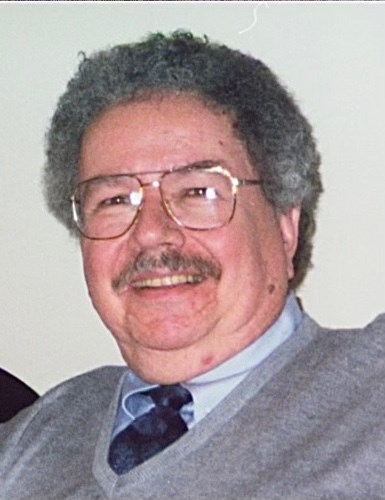 Victor Dizengoff
Victor Dizengoff
Victor Dizengoff, a trailblazer in the New York black car industry for decades, passed away peacefully on March 13. He was 86.
As a young man, he honorably served in the United States Army for three years as a Korean War veteran, and later went on to earn a master’s in economics from Brooklyn College, which laid the foundation for his career.
After earning his stripes as a taxi driver, his visionary mindset led him to entrepreneurship as the founder of Vital Two-Way Radio, a notable black car service in New York now known as Vital Transportation with a fleet of 300 vehicles.
Victor’s impact on the industry is still felt today. His leadership in the Black Car Assistance Corporation (BCAC) for 34 years was instrumental in bringing the industry together as an advocate for drivers' rights. BCAC was founded in 1991 to help unify the industry in supporting legislation that retained independent contractor status, a model that overwhelmingly dominated the black car industry. Among the organization’s monumental achievements was the groundbreaking establishment of the Black Car Fund, created by the state of New York for drivers associated with bases in NYC to provide workers’ compensation insurance—with more benefits added each year such as driver training. Victor served as the executive director of the Black Car Fund for 12 years and is now managed by Ira Goldstein. He was a longtime member and indefatigable advocate for the industry through the Taxi, Limousine & Paratransit Association (TLPA)—now called The Transportation Alliance—of which he served as president in 2009.
He is also remembered as the publisher and editor of Black Car News, a vital publication dedicated to keeping NYC’s for-hire industry well informed. The publication, which he took over in 1991, has been managed by Neil Weiss since 2005.
Victor found joy in his hobbies, which included following New York sports teams, traveling, and savoring the melodies of jazz and big band music. His greatest pleasure, however, was his beloved family. He is survived by his wife of 63 years, Sandy, and his many children and grandchildren.
He was laid to rest on March 17 at the New Montefiore Cemetery in West Babylon, N.Y. In lieu of customary remembrances, the family requests that donations be made to United Jewish Appeal (UJA) in Victor’s memory.
Chauffeur Driven extends our heartfelt condolences to the family and friends of Victor. Look for a tribute to Victor in the April issue of Chauffeur Driven.
[03.19.24]
- Details
- Category: Industry News
You asked for it and we listened. In this column, we ask operators of all sizes and from all walks of the industry a question about their business and report their answers so you can assess how your own company compares to your peers. If you would like to participate, please email Rob Smentek at rob@chauffeurdriven.com for next issue’s question.
TOPIC: Do you find yourself undercut by your competitors and how do you handle it?
 We prioritize quality and excellence over affordability, which can be a great selling point for customers who value luxury and exceptional service. Emphasizing the superior experience and attention to detail that we offer is helping us differentiate our brand from competitors who may focus solely on price.
We prioritize quality and excellence over affordability, which can be a great selling point for customers who value luxury and exceptional service. Emphasizing the superior experience and attention to detail that we offer is helping us differentiate our brand from competitors who may focus solely on price.
Lorenzo Armani, President & CEO
Absolute Styling Limousine/Travel in Style in Vancouver, B.C.
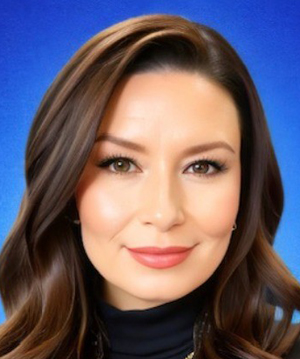 Pricing is always the easiest way to be competitive. In recent years, with inflation and low supply, the real value is consistency and an up-to-date fleet. Affiliates don’t mind paying more to make sure clients are receiving the same type of service in every market.
Pricing is always the easiest way to be competitive. In recent years, with inflation and low supply, the real value is consistency and an up-to-date fleet. Affiliates don’t mind paying more to make sure clients are receiving the same type of service in every market.
Deanna Ballard, Director, National Accounts & Affiliate Relations
Signature Transportation Services in Nashville, Tenn.
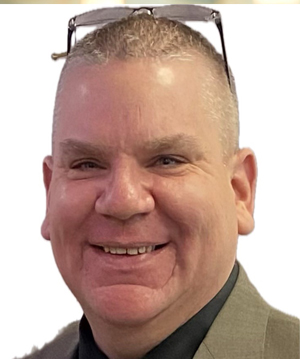 Thankfully, this is not something we experience very often. If it should arise and a client brings to our attention that another company is offering a lower rate for the same service, we kindly ask for a written quote. That doesn't mean we will match the rate, but we will do our best to explain our pricing structure and level of service we offer our clients with the desire that a reservation can be secured.
Thankfully, this is not something we experience very often. If it should arise and a client brings to our attention that another company is offering a lower rate for the same service, we kindly ask for a written quote. That doesn't mean we will match the rate, but we will do our best to explain our pricing structure and level of service we offer our clients with the desire that a reservation can be secured.
Bryan Beale, General Manager
A&A Limousine Service in Northampton, Pa.
 We have a particular competitor who advertises within the industry to affiliates as being considerably lower than us in price. We have the stance that while we are more expensive, we offer better service, better cars, and have more flexibility with affiliates. We stick to our general game plan of keeping our fleet up to date (and most importantly, providing excellent service). We accommodate whatever is humanly possible for affiliates. Undercutting prices does no good for any market, and ours is no exception. We choose not to be in a race to the bottom.
We have a particular competitor who advertises within the industry to affiliates as being considerably lower than us in price. We have the stance that while we are more expensive, we offer better service, better cars, and have more flexibility with affiliates. We stick to our general game plan of keeping our fleet up to date (and most importantly, providing excellent service). We accommodate whatever is humanly possible for affiliates. Undercutting prices does no good for any market, and ours is no exception. We choose not to be in a race to the bottom.
Nick Boccio, General Manager
Buffalo Limousine in Buffalo, N.Y.
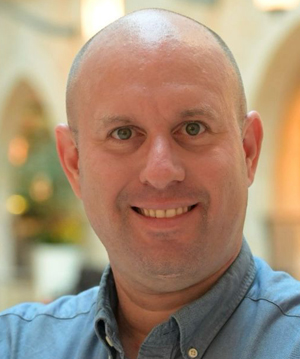 We firmly believe in providing value through superior quality and service rather than engaging in price wars with our competitors. While some may undercut us on pricing, we remain steadfast in our commitment to maintaining our prices or even increasing them where necessary. Instead of lowering rates, we concentrate on continually enhancing our product offerings and services to ensure our clients receive the utmost satisfaction and value for their investment. By prioritizing excellence over price reductions, we establish ourselves as a premium choice in the market, attracting clients who prioritize quality and reliability above all else.
We firmly believe in providing value through superior quality and service rather than engaging in price wars with our competitors. While some may undercut us on pricing, we remain steadfast in our commitment to maintaining our prices or even increasing them where necessary. Instead of lowering rates, we concentrate on continually enhancing our product offerings and services to ensure our clients receive the utmost satisfaction and value for their investment. By prioritizing excellence over price reductions, we establish ourselves as a premium choice in the market, attracting clients who prioritize quality and reliability above all else.
Eran Brill, General Manager
Superb Limousine in Tel-Aviv, Israel
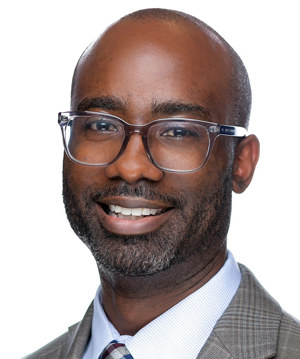 We experience this on a regular basis as our market is oversaturated with operators, both licensed and unlicensed. I teach my team that when we are asked to price match to hold firm to our values. We are not in business to be the cheapest; we must communicate our pricing with confidence in the service that comes with it. What is perceived as expensive is relative to the person you are communicating with. What is more costly are failure and recovery. If we articulate that openly to our customers, if it matters, then they pay for the comfort.
We experience this on a regular basis as our market is oversaturated with operators, both licensed and unlicensed. I teach my team that when we are asked to price match to hold firm to our values. We are not in business to be the cheapest; we must communicate our pricing with confidence in the service that comes with it. What is perceived as expensive is relative to the person you are communicating with. What is more costly are failure and recovery. If we articulate that openly to our customers, if it matters, then they pay for the comfort.
Willie Cook, VP of Operations
DTS Worldwide Transportation & ZBest Worldwide Transportation in Burtonsville, Md.
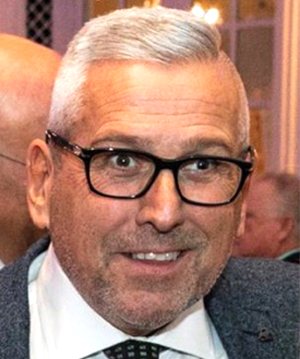 I tend to be undercut not by my true competitors, but by those who see themselves as competitors, which is rather easily combatted by re-emphasising what we offer and what they simply don’t.
I tend to be undercut not by my true competitors, but by those who see themselves as competitors, which is rather easily combatted by re-emphasising what we offer and what they simply don’t.
Martin Cox, CEO
Gerrard Cards in London, U.K.
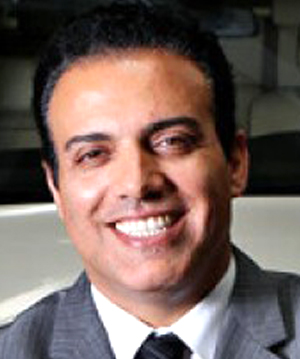 In addressing the issue of being undercut by competitors, leveraging technology and AI can be a game-changer.
In addressing the issue of being undercut by competitors, leveraging technology and AI can be a game-changer.
- Utilize AI for efficiency: Implement AI-driven solutions for route optimization, fleet management, and predictive maintenance.
- Enhanced customer experience: Leverage AI-powered chatbots and customer service platforms to provide personalized assistance, streamline booking processes, and promptly address client inquiries or concerns.
- Dynamic pricing strategies: Employ AI algorithms to analyze market trends, competitor pricing, and customer demand patterns. This data-driven approach enables operators to adjust pricing dynamically, ensuring competitiveness while maintaining profitability.
- Invest in training and development: Offer comprehensive training programs to chauffeurs, focusing on professionalism, customer service skills, and technological proficiency. Well-trained staff can deliver superior service, setting your business apart from competitors.
- Focus on value proposition: Emphasize the unique value propositions of your service, such as luxury amenities, safety features, and reliability. Communicate these benefits clearly to clients to justify premium pricing and differentiate your offering in the market.
Alex Darbahani, Founder/CEO
KLS Worldwide in Los Angeles, Calif.
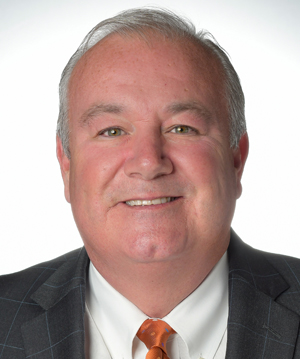 We have many competitors in the Dallas market. Some are good, some are bad, and some are unethical. As it relates to price wars, for our client base, price is about the third or fourth reason why they choose a provider. We will never be the cheapest in town and will never race to the bottom to gain accounts.
We have many competitors in the Dallas market. Some are good, some are bad, and some are unethical. As it relates to price wars, for our client base, price is about the third or fourth reason why they choose a provider. We will never be the cheapest in town and will never race to the bottom to gain accounts.
Be proud of your rates: Have talking points as to why you are more expensive. Explain why you are better and that your higher price reflects all that you do to ensure timely, safe, and professional service. If clients leave, let them, and wish them well. They will be back—I promise you.
Eric Devlin, President/Owner
Premier Transportation in Dallas, Texas
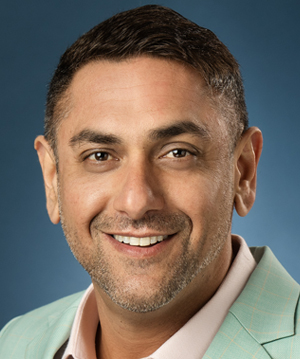 While there are plenty of operators in my service area who low-ball prices, it is not something I concern myself with. The Ritz-Carlton could never operate with the budget of a Motel 6 because the clientele is different for each brand. Our targeted customers are discriminating travelers with more concern on luxury and service delivery versus price. When a customer tells us that a competitor is offering a lower price, I typically explain that just like hotel brands or airlines, the cheapest price usually indicates a lower quality of service. I always ask, “What is the experience you are looking for?”
While there are plenty of operators in my service area who low-ball prices, it is not something I concern myself with. The Ritz-Carlton could never operate with the budget of a Motel 6 because the clientele is different for each brand. Our targeted customers are discriminating travelers with more concern on luxury and service delivery versus price. When a customer tells us that a competitor is offering a lower price, I typically explain that just like hotel brands or airlines, the cheapest price usually indicates a lower quality of service. I always ask, “What is the experience you are looking for?”
Harry Dhillon, President
Ecko Worldwide Transportation in Santa Clara, Calif.
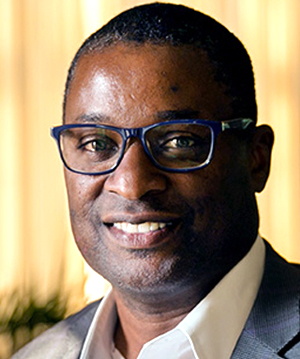 If there are instances where clients raise concerns about competitors offering lower prices, we address them by highlighting our unique benefits and superior quality. We focus on the long-term advantages that come with choosing quality over price, such as reliability, consistency, flexibility, and overall customer satisfaction. Additionally, we ensure transparency in our pricing structure, demonstrating the value proposition behind our rates.
If there are instances where clients raise concerns about competitors offering lower prices, we address them by highlighting our unique benefits and superior quality. We focus on the long-term advantages that come with choosing quality over price, such as reliability, consistency, flexibility, and overall customer satisfaction. Additionally, we ensure transparency in our pricing structure, demonstrating the value proposition behind our rates.
We feel that our cost structure is our own and our goal is to reduce that cost structure wherever possible so that we can remain competitive. At the same time, we are committed to late-model equipment, well-paid employees, and a robust maintenance and technology platform. Those factors also help drive rates, regardless of competitor offerings.
Sean Duval, President & CEO
Golden Limousine International in Milan, Mich.
 When faced with competitors undercutting prices, it is important to bring focus to the value and partnerships we have built with our clients. We stand by the quality of our service, the expertise of our staff, reliability, and a world-class level of customer service. This is a small sampling of the benefits of choosing an industry leader over simply going for the lowest priced option.
When faced with competitors undercutting prices, it is important to bring focus to the value and partnerships we have built with our clients. We stand by the quality of our service, the expertise of our staff, reliability, and a world-class level of customer service. This is a small sampling of the benefits of choosing an industry leader over simply going for the lowest priced option.
We communicate with our clients openly and honestly about our pricing structure and how it reflects the value they receive. We believe it is crucial to continuously benchmark our prices and practices against industry standards to back up this conversation and the value we offer without impact on the delivery of exceptional service. We study market trends, pricing strategies, and customer preferences to ensure our offering meets ever-changing client needs and requirements.
Raymond Gallagher, SVP, Sales & Marketing
RMA Worldwide Chauffeured Transportation in Princeton, N.J.
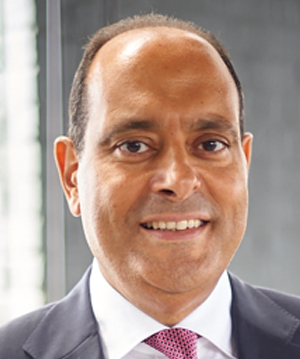 We thrive on being transparent with our clients. First, we inquire about the competition's offering to gain a clear understanding of their pricing and services. Based on this information, we may consider making a gesture of goodwill towards the client by adjusting our prices to be more competitive, although not necessarily matching the competitor's rates entirely. Simultaneously, we emphasize the quality of our services, highlighting our commitment to the highest standards and that peace of mind has no price.
We thrive on being transparent with our clients. First, we inquire about the competition's offering to gain a clear understanding of their pricing and services. Based on this information, we may consider making a gesture of goodwill towards the client by adjusting our prices to be more competitive, although not necessarily matching the competitor's rates entirely. Simultaneously, we emphasize the quality of our services, highlighting our commitment to the highest standards and that peace of mind has no price.
Edward Ghebreal, Owner
Directway in Brussels, Belgium
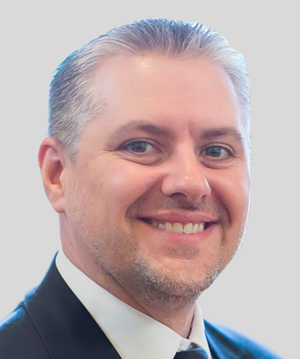 We've earned the trust of our clients by consistently delivering exceptional service and maintaining the highest standards for our vehicles, chauffeurs, insurance, and compliance. Those who undercut prices often do so by sacrificing in those areas. We don't see these operators as our direct competition—our focus is on clients who value a premium, reliable experience.
We've earned the trust of our clients by consistently delivering exceptional service and maintaining the highest standards for our vehicles, chauffeurs, insurance, and compliance. Those who undercut prices often do so by sacrificing in those areas. We don't see these operators as our direct competition—our focus is on clients who value a premium, reliable experience.
Frank Jablonski, Owner
Lux Transport in Cleveland, Ohio
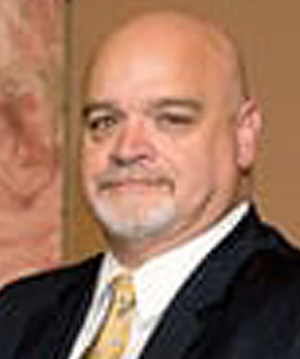 Educating the customer is, without doubt, the key to dealing with competitors undercutting your price. Our sales representatives are taught to ask as many questions as possible regarding the services and vehicles being offered by both sides of the transaction. This will consistently assist in making an apples-to-apples comparison. Confirm the specifics, convey the features, advantages, and benefits of hiring your company, and attempt to close the sale.
Educating the customer is, without doubt, the key to dealing with competitors undercutting your price. Our sales representatives are taught to ask as many questions as possible regarding the services and vehicles being offered by both sides of the transaction. This will consistently assist in making an apples-to-apples comparison. Confirm the specifics, convey the features, advantages, and benefits of hiring your company, and attempt to close the sale.
Len Joseph, President
On The Town Limousines, Frederick, Md.
 Most operators starting out do not know the cost to do a ride from A to B or hourly. They price things low thinking the more rides they do, the more money to be made. This is a flawed approach. With our clients, I explain cost versus value to them. We are properly licensed and insured, with full background checks on all hires. Even with this process, we still lose work to bottom feeders.
Most operators starting out do not know the cost to do a ride from A to B or hourly. They price things low thinking the more rides they do, the more money to be made. This is a flawed approach. With our clients, I explain cost versus value to them. We are properly licensed and insured, with full background checks on all hires. Even with this process, we still lose work to bottom feeders.
Mark Kini, President
Boston Chauffeur in Beverly, Mass
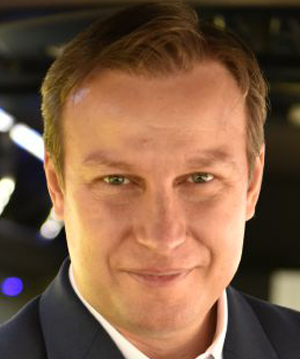 I’ve observed a softening in demand in the Chicago market, leading to price pressures based on supply and demand dynamics. We position ourselves in a balanced price range, not the priciest nor the cheapest, providing flexibility when needed. While competition is fierce, building strong client relationships is our top priority, ensuring value beyond just price.
I’ve observed a softening in demand in the Chicago market, leading to price pressures based on supply and demand dynamics. We position ourselves in a balanced price range, not the priciest nor the cheapest, providing flexibility when needed. While competition is fierce, building strong client relationships is our top priority, ensuring value beyond just price.
Stefan Kisiov, Managing Partner
K&G Coach Line in Park Ridge, Ill.
 When we are speaking with our clients, we do not discuss pricing or validate the competitors’ pricing. What we do is provide information and educate the client on what we do and how we do it. We provide third-party verification on reviews and referrals along with the value of the relationship between our company and the clients we serve. The public doesn’t not want to be sold; they want to be serviced. We promise value and we overdeliver on that promise. Price is only an issue when we fail to provide the service we promise.
When we are speaking with our clients, we do not discuss pricing or validate the competitors’ pricing. What we do is provide information and educate the client on what we do and how we do it. We provide third-party verification on reviews and referrals along with the value of the relationship between our company and the clients we serve. The public doesn’t not want to be sold; they want to be serviced. We promise value and we overdeliver on that promise. Price is only an issue when we fail to provide the service we promise.
Gary McKeon, COO
Joshua's Worldwide Transportation in Gales Ferry, Conn.
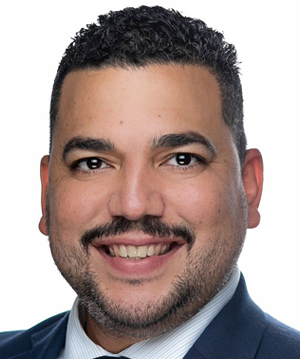 Competitive pricing is common in the luxury transportation industry. To address this, focus on highlighting the unique value and premium service you provide. Emphasize quality, reliability, and personalized experiences to differentiate yourself from competitors. Regularly assess and adjust your services to stay competitive while maintaining high standards. We all need to invest and take advantage of the new technology and make the booking process easier for our customers.
Competitive pricing is common in the luxury transportation industry. To address this, focus on highlighting the unique value and premium service you provide. Emphasize quality, reliability, and personalized experiences to differentiate yourself from competitors. Regularly assess and adjust your services to stay competitive while maintaining high standards. We all need to invest and take advantage of the new technology and make the booking process easier for our customers.
Robert Rodríguez, President/CEO
First Class Destination Solutions in Carolina, Puerto Rico
 Competing on price can be a difficult strategy to sustain, as it can lead to a race to the bottom and ultimately hurt profitability. We have managed to survive this by having the best service and easy booking tool. We also must remind the client that we have superior service and always stand behind that.
Competing on price can be a difficult strategy to sustain, as it can lead to a race to the bottom and ultimately hurt profitability. We have managed to survive this by having the best service and easy booking tool. We also must remind the client that we have superior service and always stand behind that.
Jess Sandhu, Director of Operations
A&A Limousine & Bus Service in Kenmore Wash.
 Undercut by competitors? With my continued investment in newer equipment, technology, and our clean look and feel, we aren’t playing in the same game, field, stadium, or even the same sport as our competitors. I don’t focus on what competitors do… my focus is on how we can do it better.
Undercut by competitors? With my continued investment in newer equipment, technology, and our clean look and feel, we aren’t playing in the same game, field, stadium, or even the same sport as our competitors. I don’t focus on what competitors do… my focus is on how we can do it better.
Quentin Shackelford, Owner
AllClassLimo.com in Wichita, Kan.
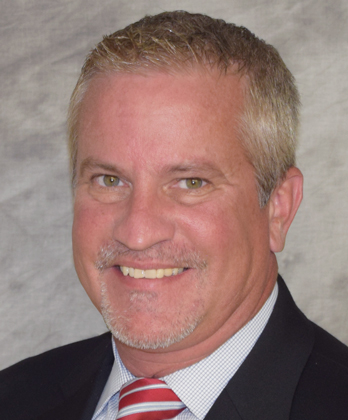 Don't worry about what others are doing. Know your numbers and determine where you need to be on the rate of a trip to get you to the profit you want. If you are higher than others, there should be a reason. Be the best in the business and command the rate you are asking. In the words of author John DiJulius, "Make price irrelevant."
Don't worry about what others are doing. Know your numbers and determine where you need to be on the rate of a trip to get you to the profit you want. If you are higher than others, there should be a reason. Be the best in the business and command the rate you are asking. In the words of author John DiJulius, "Make price irrelevant."
Scott Woodruff, President
Majestic Limousine & Coach in Des Moines, Iowa
We’ve loved hearing your answers to our benchmarking questions—but we always welcome suggestions for future topics, too!
Send an email to rob@chauffeurdriven.com you just might see your query answered in our next e-News.
[03.08.24]
- Details
- Category: Industry News
You asked for it and we listened. In this column, we ask operators of all sizes and from all walks of the industry a question about their business and report their answers so you can assess how your own company compares to your peers. If you would like to participate, please email Rob Smentek at rob@chauffeurdriven.com for next issue’s question.
TOPIC: How long is your chauffeur training program? What are the three most important things you cover?
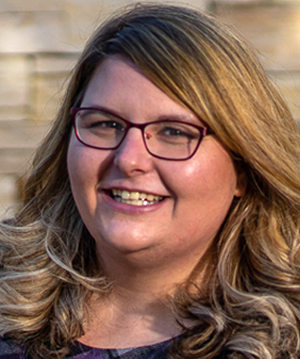 Depending on our company’s volume and the experience of the new hire, our initial training program typically lasts one to two weeks. The top three things that we encompass in our training are:
Depending on our company’s volume and the experience of the new hire, our initial training program typically lasts one to two weeks. The top three things that we encompass in our training are:
- The administrative side of things with an in-office day-long program onboarding the chauffeur into our software, reviewing our policy manual, ensuring all apps are downloaded and accessible, etc. During this step we also set them up on PAX Training, which they are required to complete prior to being offered live trips.
- We have chauffeurs complete a multi-day “tour” and ride-along program with our chauffeur manager to witness exactly how chauffeur service works on pre-approved in-house client trips and utilize the downtime in between trips to take them to all local landmarks, FBOs, hotels with unique parking areas, etc.
- New chauffeurs are tiered into the types of trips they are offered (starting with easier trips and smaller vehicles before being moved to harder trips with specialty vehicles) and “secret shopped” on a live run within the first seven days on their own.
ExecuStar World Class Transportation in Highlands Ranch, Colo.
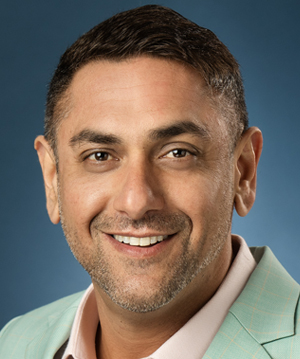 Our chauffeur training is ongoing and includes becoming certified in various types of trips such as airport transfers, concert and sporting events, weddings, funerals, and other specialized services where there may be unique expectations for the chauffeur. Our initial training program is a five-day course with the three most important focus areas being passenger safety, professional etiquette, and what to do if they are involved in a collision.
Our chauffeur training is ongoing and includes becoming certified in various types of trips such as airport transfers, concert and sporting events, weddings, funerals, and other specialized services where there may be unique expectations for the chauffeur. Our initial training program is a five-day course with the three most important focus areas being passenger safety, professional etiquette, and what to do if they are involved in a collision.
Harry Dhillon, President
Ecko Worldwide Transportation in Santa Clara, Calif.
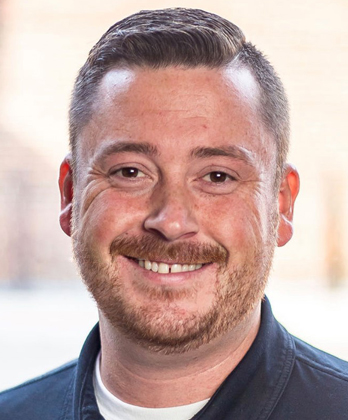 Our chauffeur training program typically spans three weeks. Initial training with the senior chauffeur is four to eight hours depending on experience. During this time, we prioritize three crucial aspects: comprehensive vehicle safety protocols, impeccable customer service etiquette, and proficient navigation skills to ensure timely and efficient transportation for our clients.
Our chauffeur training program typically spans three weeks. Initial training with the senior chauffeur is four to eight hours depending on experience. During this time, we prioritize three crucial aspects: comprehensive vehicle safety protocols, impeccable customer service etiquette, and proficient navigation skills to ensure timely and efficient transportation for our clients.
Karl Guenther, President & CEO
Statement Limousine in Sheffield Village, Ohio
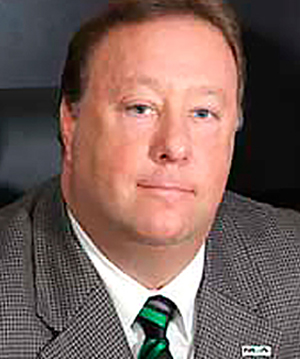 Our chauffeur training program runs 32 hours. The three most important things covered are customer service and etiquette, safety procedures, and company policies.
Our chauffeur training program runs 32 hours. The three most important things covered are customer service and etiquette, safety procedures, and company policies.
Jeff Greene, President
Greene Worldwide Transportation in Atlanta, Ga.
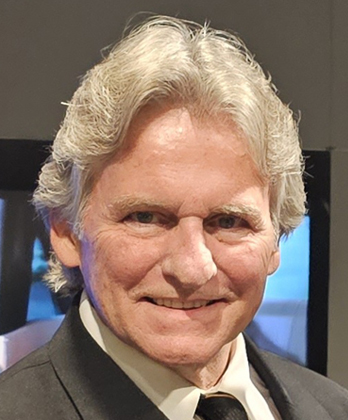 We have ongoing training with the PAX Training program. The top three things we focus on are exceeding the customer’s expectations, safety-first training, and car maintenance.
We have ongoing training with the PAX Training program. The top three things we focus on are exceeding the customer’s expectations, safety-first training, and car maintenance.
Patrick Helvey, Owner & President
Executive Town Car & Limousine Service in Roanoke, Va.
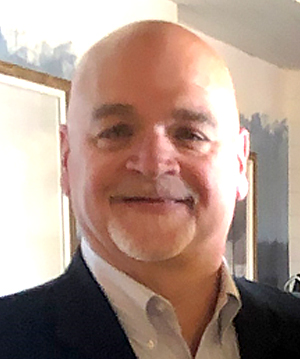 Our chauffeur training program has evolved over the years from a single day, primarily classroom review of our standards and expectations to a three-day comprehensive review of policies, procedures, expectations, as well as a closed and open-road driving test. We cover the history of our company, our company culture, and the importance of the simple fact that we encourage our staff to call with any questions that may occur during your first 30 days of employment.
Our chauffeur training program has evolved over the years from a single day, primarily classroom review of our standards and expectations to a three-day comprehensive review of policies, procedures, expectations, as well as a closed and open-road driving test. We cover the history of our company, our company culture, and the importance of the simple fact that we encourage our staff to call with any questions that may occur during your first 30 days of employment.
Len Joseph, President
On The Town Limousines in Frederick, Md.
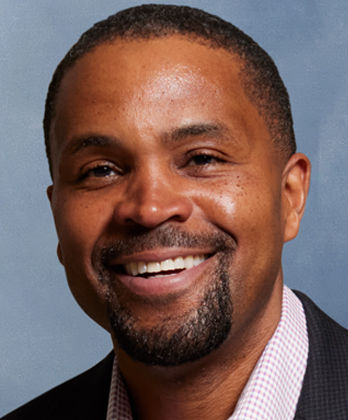 The duration of new-hire training here varies and is contingent upon the trainee’s prior experience, and ranges from one to two weeks. Following an initial training period, there is additional follow-up training spread over the next three months. The initial training focuses on key areas such as our internal procedures and service standards, safe driving practices, and knowledge of local geography. Additionally, given the increasing technological advancements in vehicles, a portion of our training is dedicated to acquainting our trainees with the features across all the different types of vehicles in our fleet.
The duration of new-hire training here varies and is contingent upon the trainee’s prior experience, and ranges from one to two weeks. Following an initial training period, there is additional follow-up training spread over the next three months. The initial training focuses on key areas such as our internal procedures and service standards, safe driving practices, and knowledge of local geography. Additionally, given the increasing technological advancements in vehicles, a portion of our training is dedicated to acquainting our trainees with the features across all the different types of vehicles in our fleet.
Shariff McMichael, President & CEO
Dav El/BostonCoach in Everett, Mass.
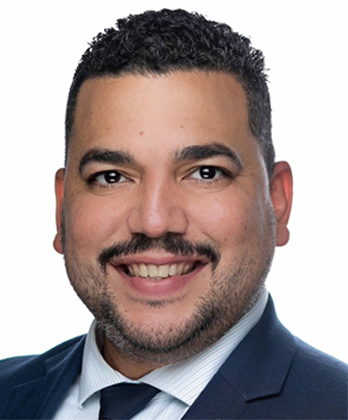 Before the chauffeur gets behind the steering wheel, these are our top three focuses:
Before the chauffeur gets behind the steering wheel, these are our top three focuses:
- A comprehensive program should prioritize teaching defensive driving techniques to ensure that chauffeurs can respond effectively to various road conditions and potential hazards.
- Chauffeurs often interact directly with clients, so training should emphasize professionalism, excellent communication, and superior customer service to create a positive and enjoyable experience for passengers.
- A thorough understanding of vehicle maintenance and knowledge of emergency procedures are crucial for chauffeurs. This includes routine vehicle checks, basic troubleshooting, and the ability to handle unexpected situations or emergencies on the road.
Robert Rodríguez, President & CEO
First Class Destination Solutions in Carolina, Puerto Rico
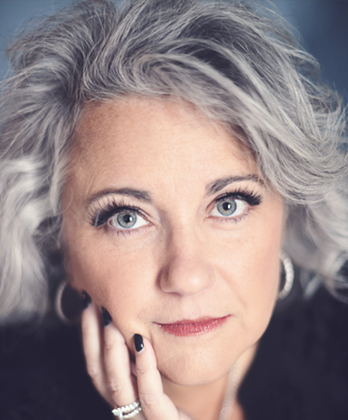 We have recently hired a full-time chauffeur/talent trainer. The first thing we are doing is completely re-creating our chauffeur training program. Currently, it’s about three days, and the new program will probably be about a week. For CDL chauffeurs, it could be an additional day or two.
We have recently hired a full-time chauffeur/talent trainer. The first thing we are doing is completely re-creating our chauffeur training program. Currently, it’s about three days, and the new program will probably be about a week. For CDL chauffeurs, it could be an additional day or two.
The trainer will do everything from onboarding to company standards to ensuring pre/post trips are done properly, along with all their paperwork for DOT.
The three most important things to cover are safety, safety, and safety. In addition, hospitality and providing peace of mind for our clients are critically important.
Tracy Salinger, President
Unique Limousine in Harrisburg, Pa.
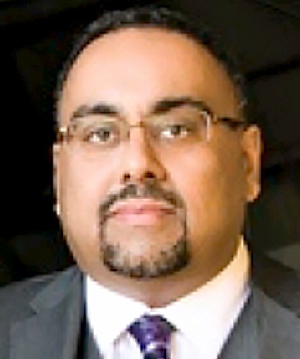 We divide our drivers into three categories: non-CDL (sedan and SUV chauffeur), charter bus drivers, and shuttle/school drivers. Since we typically hire trained CDL drivers for the latter two and/or drivers with some type of driving experience, we have the new employee shadow a senior driver for two days and then provide a one-day online training with a new defensive driving course.
We divide our drivers into three categories: non-CDL (sedan and SUV chauffeur), charter bus drivers, and shuttle/school drivers. Since we typically hire trained CDL drivers for the latter two and/or drivers with some type of driving experience, we have the new employee shadow a senior driver for two days and then provide a one-day online training with a new defensive driving course.
We try not to teach them about policies all at once. We train them for the next two weeks and discuss each run that they will be doing, making sure they understand the layout for each day.
Jess Sandhu, Director of Operations
A&A Limousine & Bus Service in Kenmore, Wash.
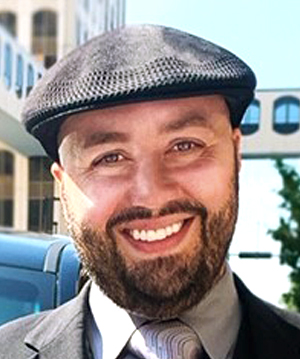 Chauffeur training is an ongoing process. Sure, you have initial training before releasing them into the wild and expecting them to do everything the way the owner wants; however, bad habits will present themselves over time and need to be corrected. Dash cams, ride alongs, and meetings can help, but wonderful and honest clients are your best tool to address some behaviors.
Chauffeur training is an ongoing process. Sure, you have initial training before releasing them into the wild and expecting them to do everything the way the owner wants; however, bad habits will present themselves over time and need to be corrected. Dash cams, ride alongs, and meetings can help, but wonderful and honest clients are your best tool to address some behaviors.
Quentin Shackelford, Owner
AllClassLimo.com in Wichita, Kan.
For our CDL chauffeur training program, we require a minimum of 10 hours in a minibus and 20 hours in a motorcoach actually driving with me. In addition, there are several days of training in the office and walk around the vehicle training/ADA, etc. Applicants are required to complete our PAX Training program prior to their first day of training.
If I had to pick only three keys, it would be safety/logging/connecting to ELD, knowledge of the equipment, and knowledge of the area.
For non-CDL training, chauffeurs will complete PAX Training as well and will spend at least three days with a supervisor (sometimes longer). The three keys above are covered, excluding logging and ELD use.
Shannon Vaught, Training and DOT Compliance Manager
AJL International in Irving, Texas
 Our initial chauffeur training program is five days, which includes an intro to our history, culture, and expectations; defensive driving instruction; PAX Training for lessons and testing; a road test; a day mirroring a senior chauffeur; and a review of their schedules with the dispatch manager. We closely monitor and check in with them for six weeks.
Our initial chauffeur training program is five days, which includes an intro to our history, culture, and expectations; defensive driving instruction; PAX Training for lessons and testing; a road test; a day mirroring a senior chauffeur; and a review of their schedules with the dispatch manager. We closely monitor and check in with them for six weeks.
Our key points:
- Safety: This is key in helping us mitigate the ever-increasing insurance rates. We stress the importance of the safety of our employees and customers, and we utilize both in-vehicle cameras and GPS to monitor driving habits and speed awareness.
- Customer service: Our clients expect premium service, and we train our chauffeurs to deliver a Ritz-Carlton experience.
- Communication: This is a critical component in providing our standard of high level of service. We stress the importance of clearly communicating with our customers as well as our dispatch team in order keep them updated with any trip deviations, outlying activities such as recent traffic issues, and their vehicle conditions.
Gem Limousine Worldwide in Woodbridge Township, N.J.
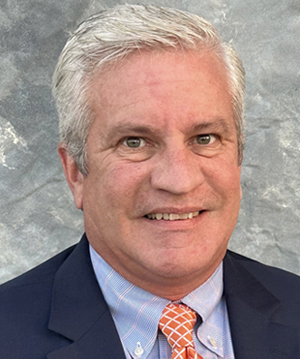 Chauffeur training typically lasts 7-10 days. We have a training onboarding process, and there are no three points that are more important than other items. Each item on the checklist needs to be done before the chauffeur is released on their own.
Chauffeur training typically lasts 7-10 days. We have a training onboarding process, and there are no three points that are more important than other items. Each item on the checklist needs to be done before the chauffeur is released on their own.
Scott Woodruff, President
Majestic Limousine & Coach in Des Moines, Iowa
 As the roles of chauffeurs and drivers often tend to overlap, we train our chauffeurs to understand the key differences with a focus on three matters: appearance, homework of trip itineraries, and positive attitude in all communications.
As the roles of chauffeurs and drivers often tend to overlap, we train our chauffeurs to understand the key differences with a focus on three matters: appearance, homework of trip itineraries, and positive attitude in all communications.
Appearance encompasses car cleanliness, professional attire (well-tailored suit, a crisp shirt, a tie, and polished shoes), and overall presentation.
The level of preparation and attention to detail required when it comes to trip itineraries is also different. Chauffeurs are expected to conduct thorough research before each trip to ensure a stress-free experience for their clients.
Finally, regarding verbal or virtual communications, chauffeurs are expected to display a positive and professional demeanor as well as a level of discretion. They must possess excellent communication skills, listening attentively to passengers’ needs and preferences, and responding courteously and respectfully.
While chauffeurs and drivers share the common objective of transporting passengers, we highlight that the distinctions between these roles are significant.
Amy Yan, Co-Founder & Managing Partner
AmyExpress in Hong Kong, China
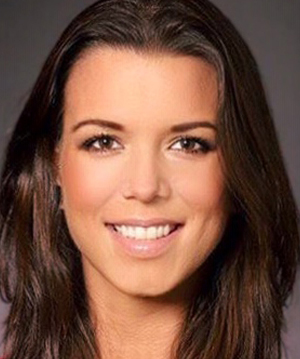 We invest approximately two weeks in rigorous training for those starting with a clean slate. Even for experienced chauffeurs, we dedicate at least one and a half weeks to ensure they align with our standards and ethos because we believe in cultivating ambassadors of luxury and professionalism.
We invest approximately two weeks in rigorous training for those starting with a clean slate. Even for experienced chauffeurs, we dedicate at least one and a half weeks to ensure they align with our standards and ethos because we believe in cultivating ambassadors of luxury and professionalism.
There are three crucial aspects we cover:
- Professionalism and etiquette: Beyond driving skills, we emphasize the importance of demeanor and presentation. Our chauffeurs are trained continuously to embody grace, discretion, and attentiveness by utilizing the PAX Training program.
- Safety and defensive driving: Safety is non-negotiable. Our program includes intensive training in defensive driving techniques (Smith System, SAFR), handling emergencies, and vehicle maintenance protocols. Whether navigating through busy city streets or serene wine country roads, our chauffeurs prioritize the safety and comfort of our guests.
- Concierge-level service: Our chauffeurs aren’t just drivers but knowledgeable guides and attentive concierges. They undergo training to familiarize themselves with the entire regions we serve, including wineries, attractions, and local insights.
Christina Zanone, General Manager
Beau Wine Tours in Napa, Calif.
We’ve loved hearing your answers to our benchmarking questions—but we always welcome suggestions for future topics, too!
Send an email to rob@chauffeurdriven.com you just might see your query answered in our next e-News.
[03.08.24]

